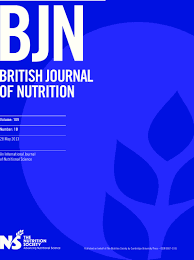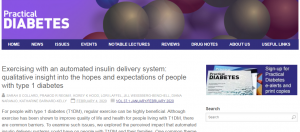The Health Research Authority have released guidance for clinical researchers, sponsors and sites with regard to COVID-19 (Coronavirus) – please read this guidance if you are currently conducting your project or are in the planning stages/set-up of the study (so you are aware of the current situation).
This guidance is subject to change and will be updated as and when required by the HRA.
You can read the guidance in the link provided above, but for convenience, these are the most likely situations BU clinical researchers may face. Please ensure that in planning amendments that these do not create additional burden to NHS staff or resources.
Amendments to existing studies impacted by wider COVID-19 response
- Example – Where changes to administrative arrangements are required to reduce burden or physical contact with sites – for example, changes to monitoring arrangements.
How this should be handled – these are non-substantial amendments that do not require HRA/HCRW approval or NHS R&D agreement. Where the study involves the NHS, they will be marked by the sponsor as a category C amendment not requiring assessment, and sent directly to the sites. The site should implement the amendment on the date specified by the sponsor.
- Example – Where changes are made to how or when patients are seen to avoid exposing patients or to reduce burden on clinical services – for example, changing site visits to phone calls or postal questionnaires.
How this should be handled – these are non-substantial amendments that do not require HRA/HCRW approval or NHS R&D agreement. The same procedure as the first example should be followed.
- Example – Where a temporary halt needs to be placed on some or all of the study, or the duration of the study needs to be extended.
How this should be handled – these are non-substantial amendments that do not require HRA/HCRW approval or NHS R&D agreement. The same procedure as above should be followed.
- Example – studies that need to be closed.
How this should be handled – for studies not involving provision of treatment to participants, a notification to the REC or study-wide review (for non-REC studies) should be provided, and an end of study report should subsequently be provided.
For any studies involving provision of treatment to participants, careful consideration should be given to post-study care. If this cannot be in line with the information provided in the participant-information sheet, a substantial amendment should be submitted.
To support sites in implementing the amendments it is important that:
- The changes and local implications are made clear
- Any changes to documentation are provided in tracked changes
- In England and Wales All correspondence to sites should be copied to R&D/I department and the PI and delivery teams
- Where indicated above, the sponsor should include the category and confirm that no assessment is required.
There may be some instances in which the site may raise issues or changes that need to be made. If they do, please inform the Sponsor as soon as possible.
What to do next
If you think that you may need to implement any changes or amendments to your study due to COVID-19 please get in touch with us as soon as possible. If you have any concerns or queries then please also get in touch to discuss these.

















 April’s Café Scientifique – Should we help machines understand and respond to our emotions?
April’s Café Scientifique – Should we help machines understand and respond to our emotions? Postgraduate Research Experience Survey (PRES) 2024 – 2 WEEKS LEFT
Postgraduate Research Experience Survey (PRES) 2024 – 2 WEEKS LEFT Working with The Conversation: online training session – Wednesday 8th May
Working with The Conversation: online training session – Wednesday 8th May Apply for up to £1,000 to deliver an event and take part in a national festival of public engagement with research
Apply for up to £1,000 to deliver an event and take part in a national festival of public engagement with research MSCA Postdoctoral Fellowships 2024
MSCA Postdoctoral Fellowships 2024 Horizon Europe News – December 2023
Horizon Europe News – December 2023